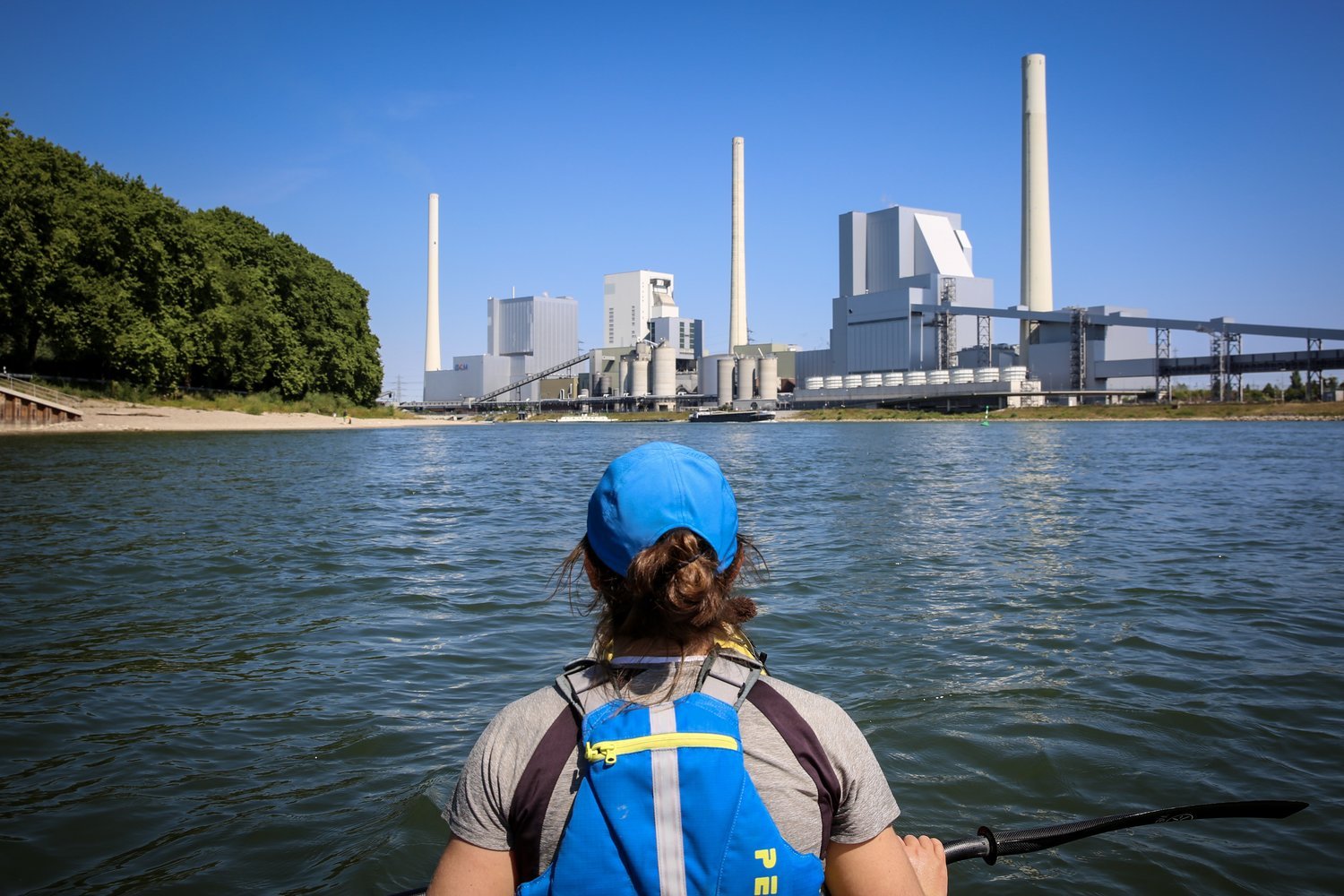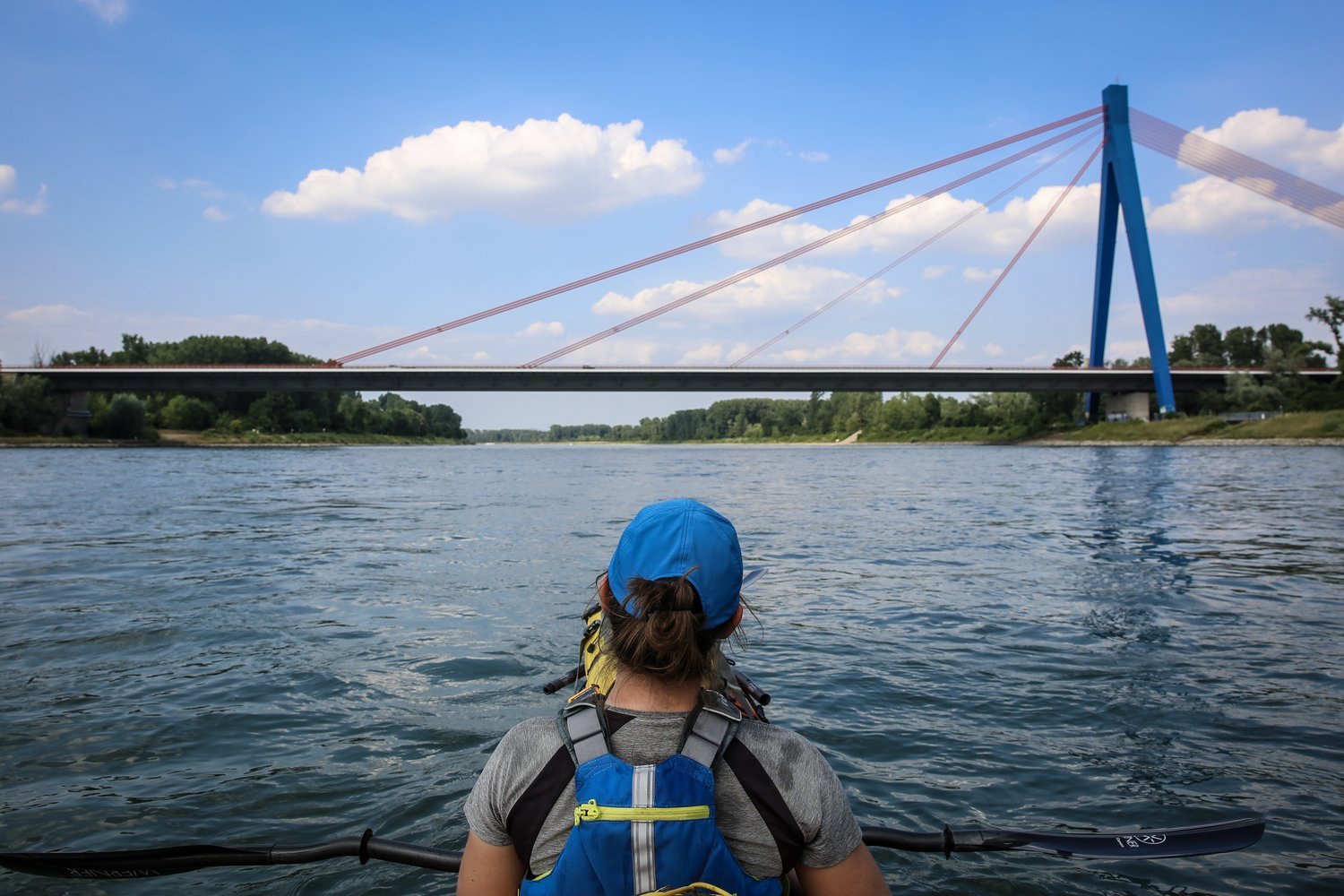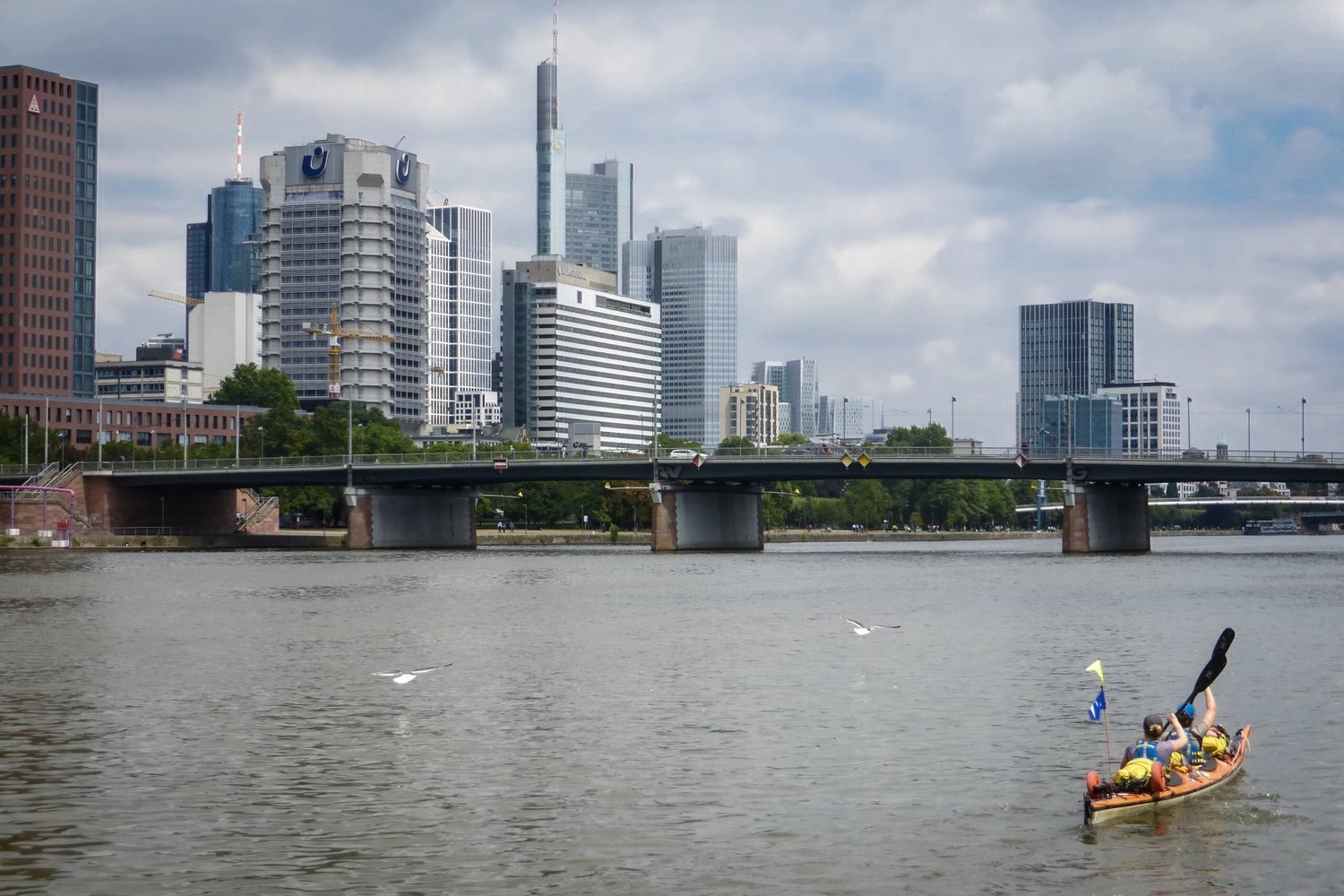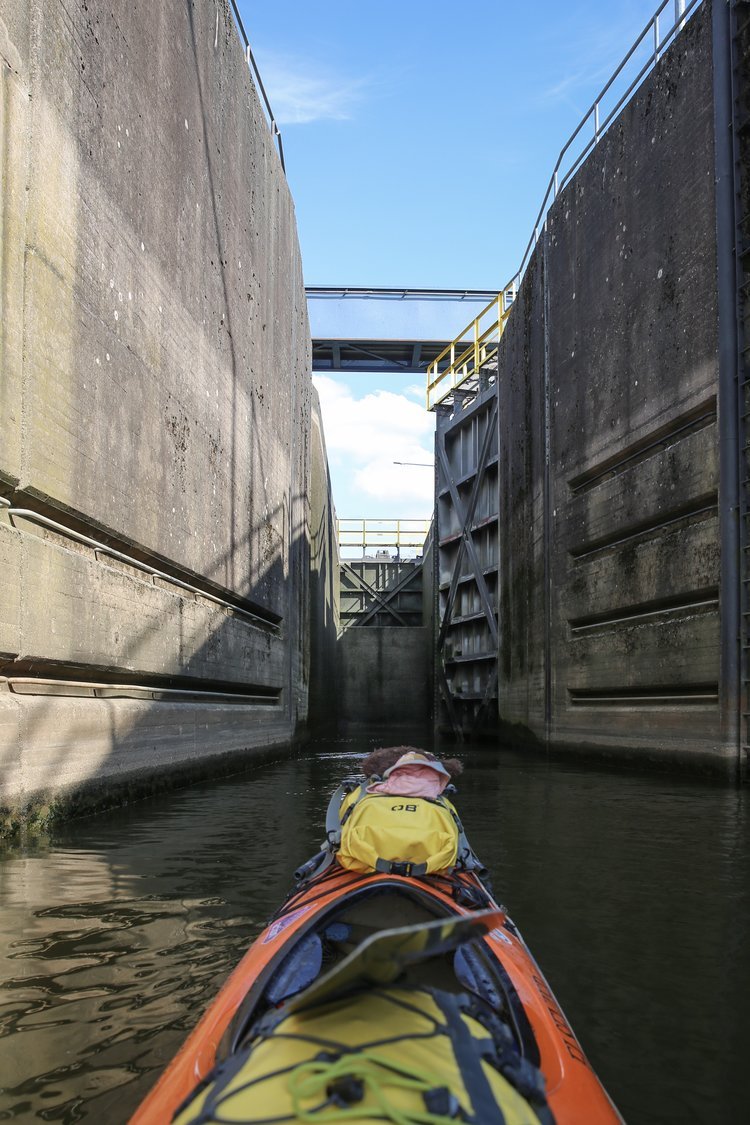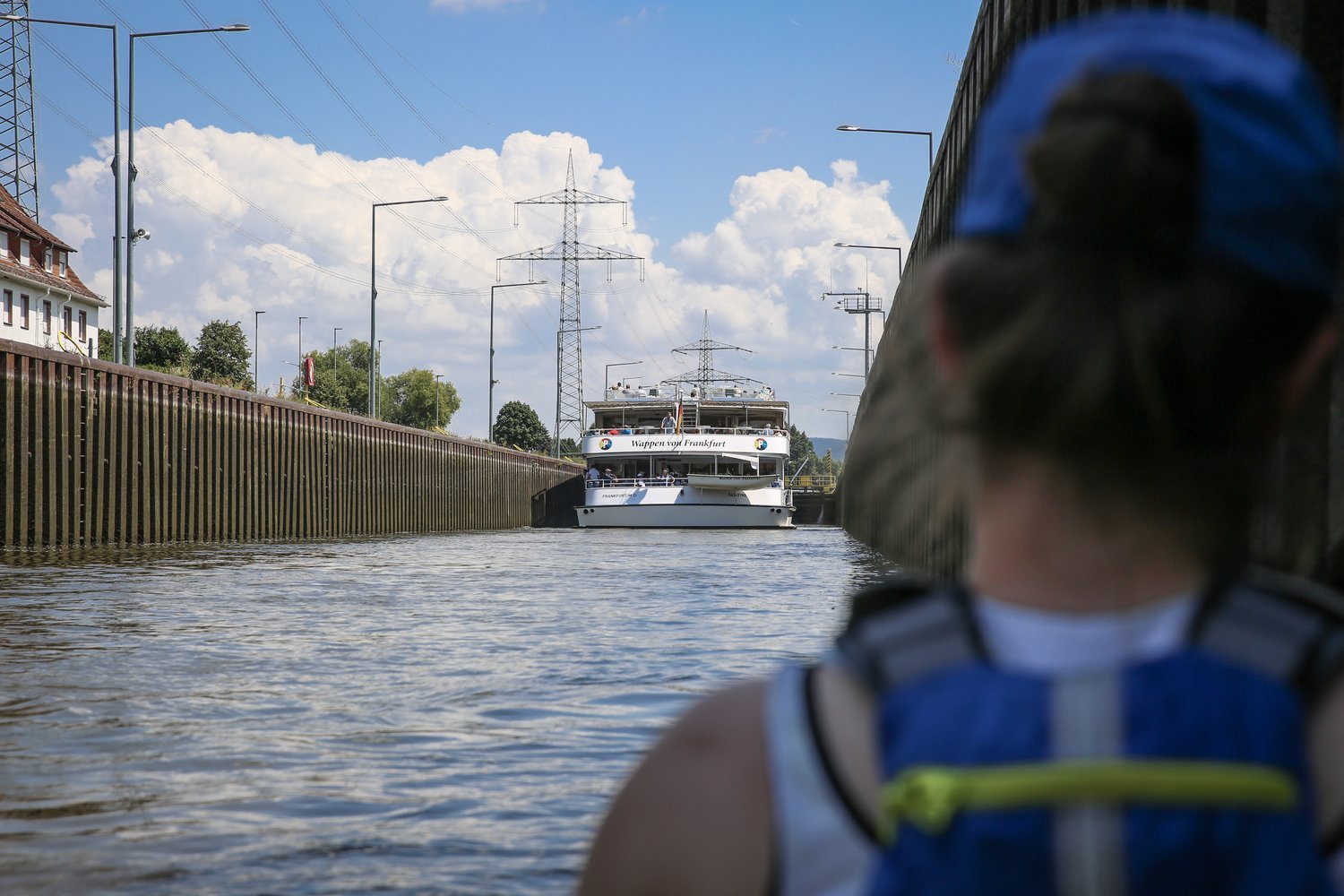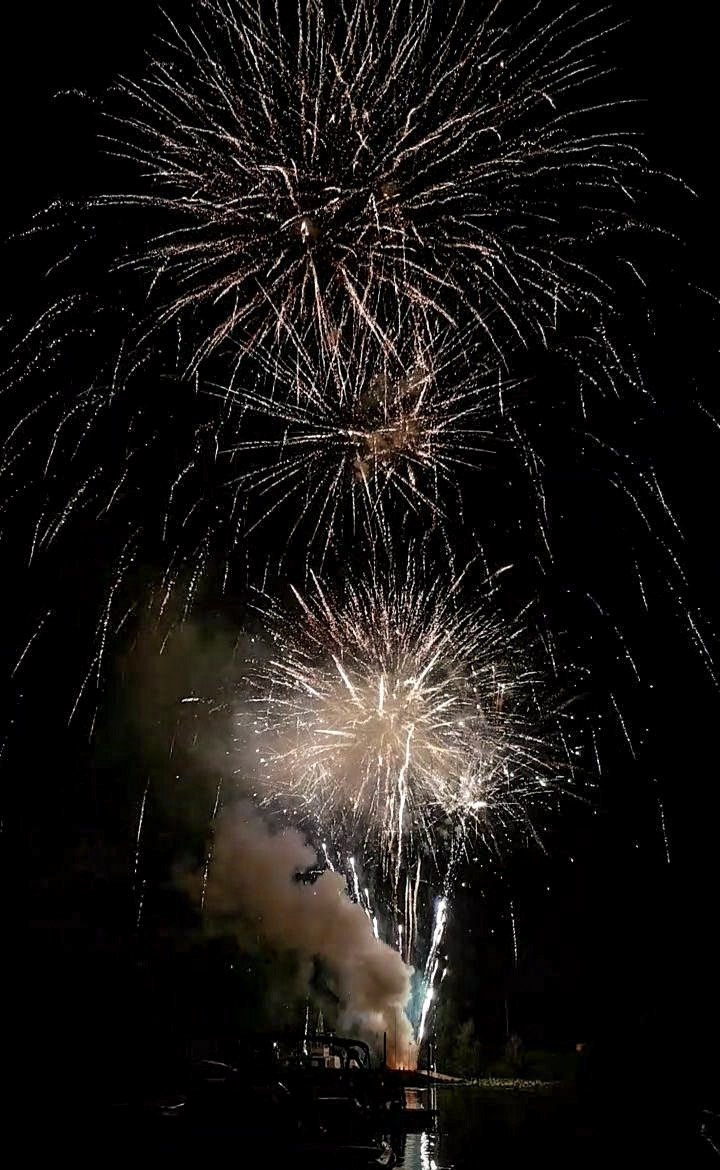8: The Rhine
July 14, 2018
After an enjoyable two days off in the beautiful city of Strasbourg, it was time for Kate and I to leave behind the safety and comfort of the French canals in order to join the Rhine. Knowing that this was Europe’s busiest river (in terms of boat traffic) with a much stronger current than anything we had faced before, Kate and I were feeling a mixture of excitement and apprehension.
This feeling of apprehension only increased as permission to enter the lock was granted on the condition that we had certain documentation (we did not) and that the lock “boss” came to supervise. Paddling up to the vast gate did not help our nerves, nor did the unwavering stare of the lock-keeper, who clearly had reservations about a kayak trespassing into his lock. We were directed to a ladder which Kate clung onto as the gate creaked closed behind us. We tried to work out whether the water level would rise or fall; Kate could only see three ladder rungs below the surface, suggesting the water would go up. However, the rungs above us were covered with a dense netting of cobwebs, which was puzzling: if we were indeed going up, these cobwebs would not be there.
As a slight ripple spread across the surface of the water, the lock-keeper yelled down to me, instructing me to hold on as well. Now slightly terrified about what was coming, I grabbed onto a mooring post in an alcove of the lock wall, aware of the fact that shortly I would not be able to hold it, regardless of whether the water was going up or down.
Just as Kate and I began to say our final farewells to each other, the gate at the front of the lock slid open. Completely baffled, Kate and I kept holding onto our respective holds until the lock-keeper barked that we were allowed to leave the lock. Trying to suppress laughter, we paddled out as quickly as possible, breaking into giggles as we made it to the open water... The water level had literally gone up by two inches! It was by far the most dramatic and overly cautious build-up to a lock, for no apparent reason.
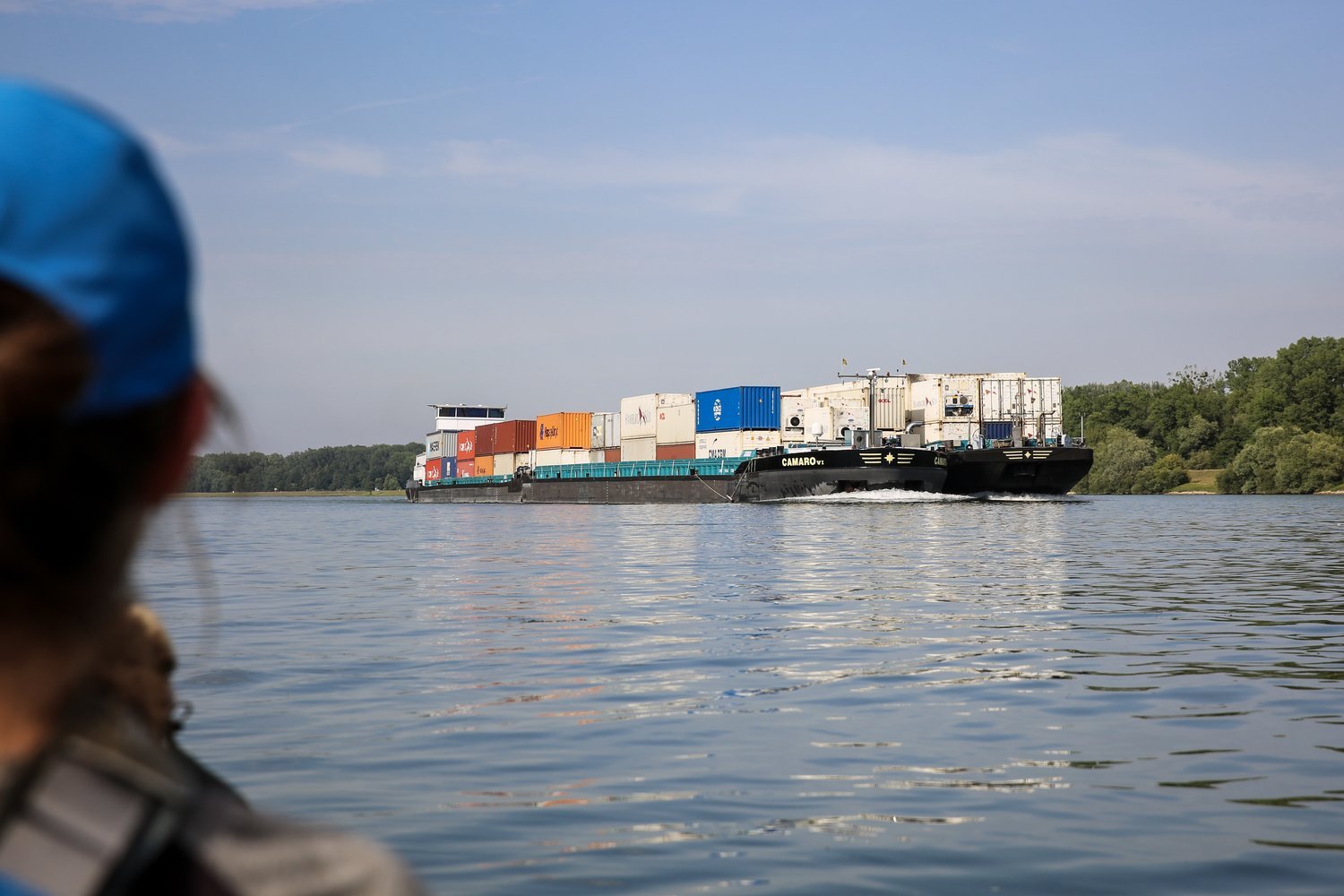
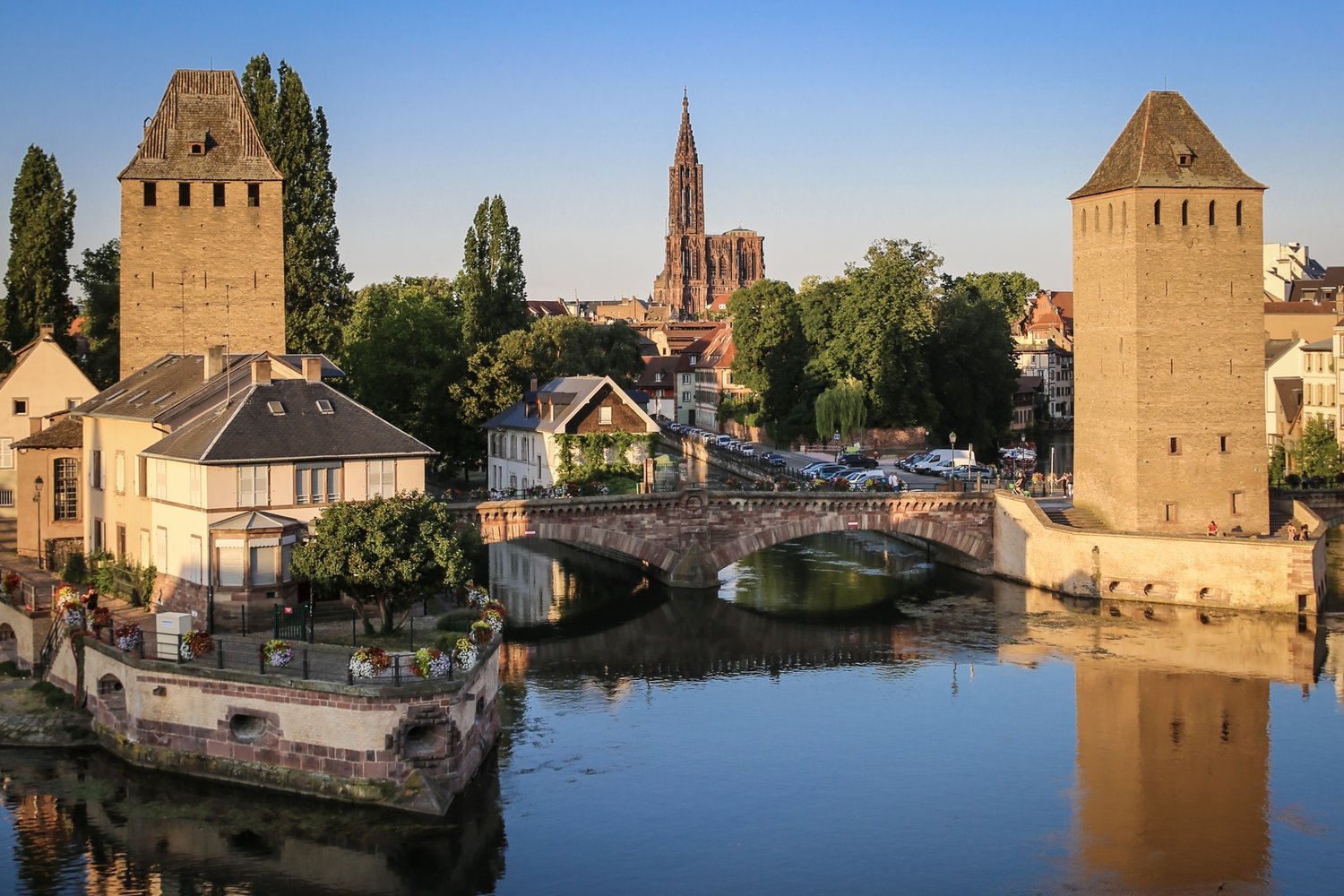
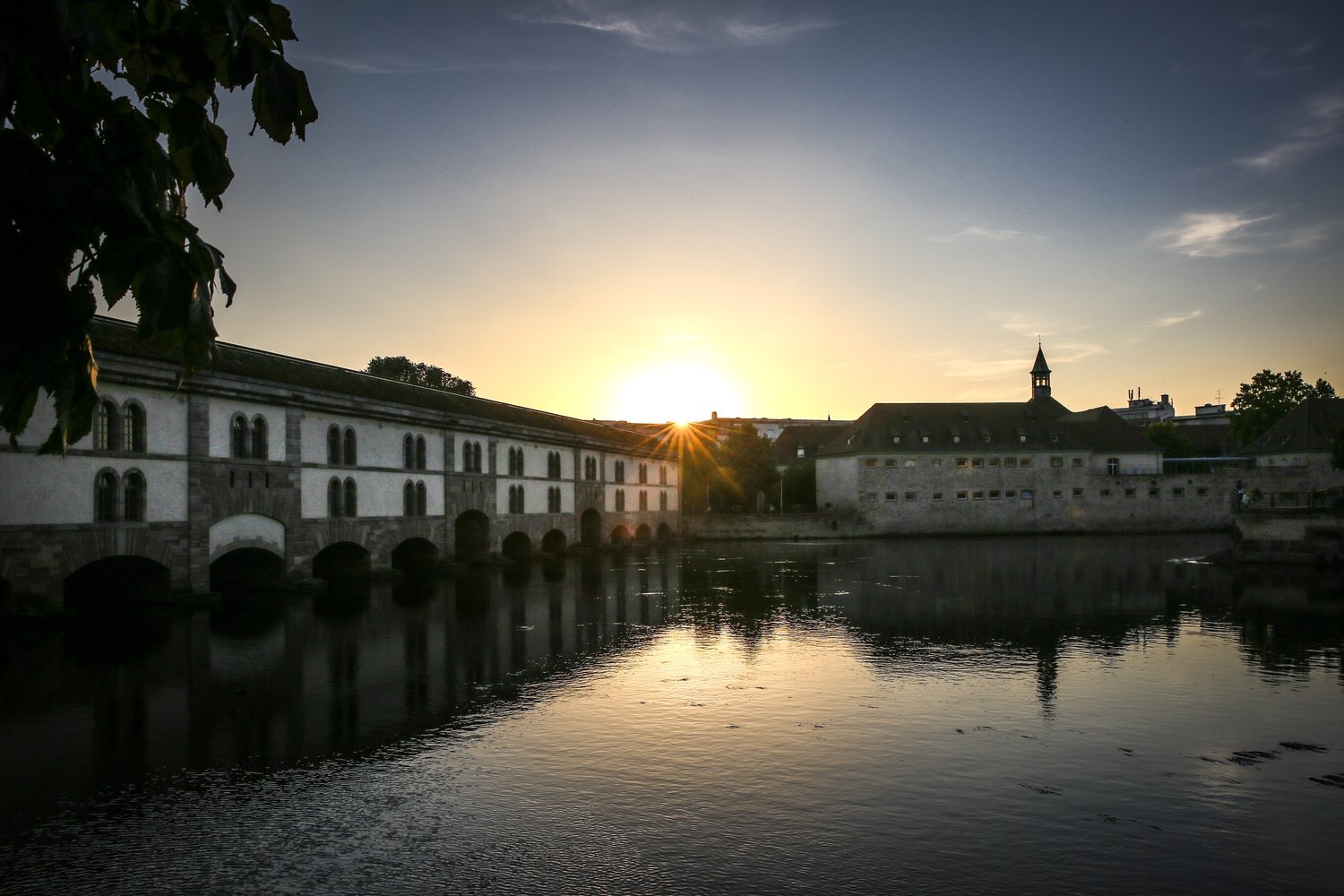
Our feeling of being entirely underwhelmed was very quickly flipped on its head as we made it to the junction with the Rhine. Edging our way around the corner to see if anything was coming before we pulled out, Kate let out a yelp of “BARGE!” Moments later, a double-length barge charged past, 180m long and heavily loaded. Simultaneously, an equally enormous barge swept past in the opposite direction. The combined wash of the two vessels was comparable to some of the biggest waves we experienced on the open water of the Kent coast, nearly throwing us into the boulder-covered bank.
Once the wash had subsided we made our way to the safety of the opposite bank. The water calmed down over the next few hours as we made it out of the industrial outskirts of Strasbourg and we began to feel a hint of disappointment at the Rhine: we’d expected a current so strong it whipped us downstream without any effort on our behalf. In reality, it felt only faintly faster than some of the waterways we had already paddled on.
However, after being lulled into this false sense of security, Kate and I were swiftly brought back to reality. We had made it halfway round the first lock on the Rhine, mere hours since leaving Strasbourg, when our barely-used wheels collapsed, broken beyond repair... Yet again. To make matters more frustrating, we were still in France, making us feel like we really had made no progress.
Once the initial shock had subsided we were able to focus on how to rectify the situation. Previous experience of wheel breakages had taught us that it would not be a straightforward process. Luckily, we were taken in for a few days by the incredibly generous Jack and Maria Fernanda, friends of a relative of Kate’s. Despite only hearing of us and our adventure a few days prior, they unquestioningly hosted us in their wonderful home in Strasbourg while we found replacement wheels (hopefully more up to the task). We can’t thank them enough for not only coming to our rescue and scooping us up from the side of the lock, but also for making our stay so enjoyable.
Wheels finally replaced, we were able to continue with our expedition. On our second day back on the Rhine we learned that our original expectations were accurate after all. After making our way around the second of the two locks on the Rhine, we rejoined the main river to discover an entirely different experience ahead of us: there were whirlpools, rapids and currents so powerful we were pitched from side-to-side across the water. Our attempts to stop to do our next FreshWater Watch test were futile; all we achieved was spinning around by 180 degrees.
As if the conditions of the water weren’t enough for us to try and handle, there were also barges coming from both directions. The charts I was navigating by showed that the channel for boats slalomed its way down the river, with the ships crossing to-and-fro constantly.
More than a little perturbed by all of this, we eventually resorted to crash-landing on a pebble beach. I’m sure we would have coped better had we been prepared for this drastic change, but in that moment we were terrified of getting back on the water. Thus, we found ourselves pitching our tents by the dunes on the beach, trying not to focus too much on the speed and power with which the water was churning past. Deciding to make the most of the situation, I got a fire going using the dry wood scattered around us and we went for a quick dip in the river (in the shallows where there was no current).
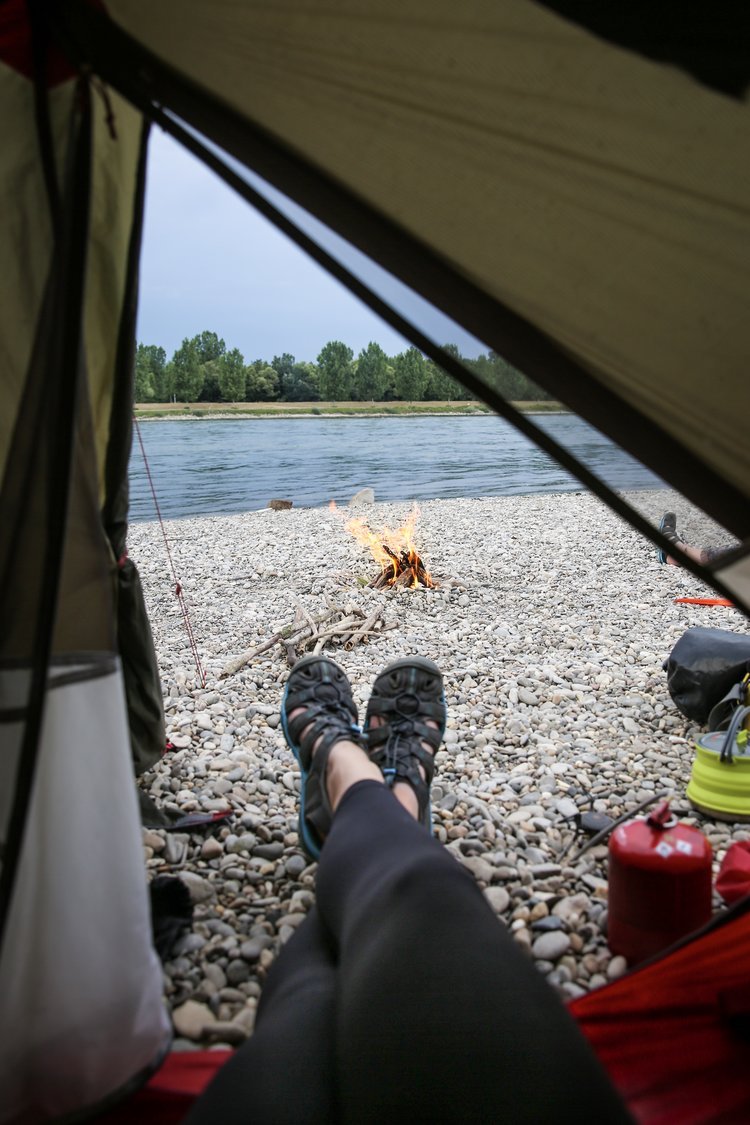
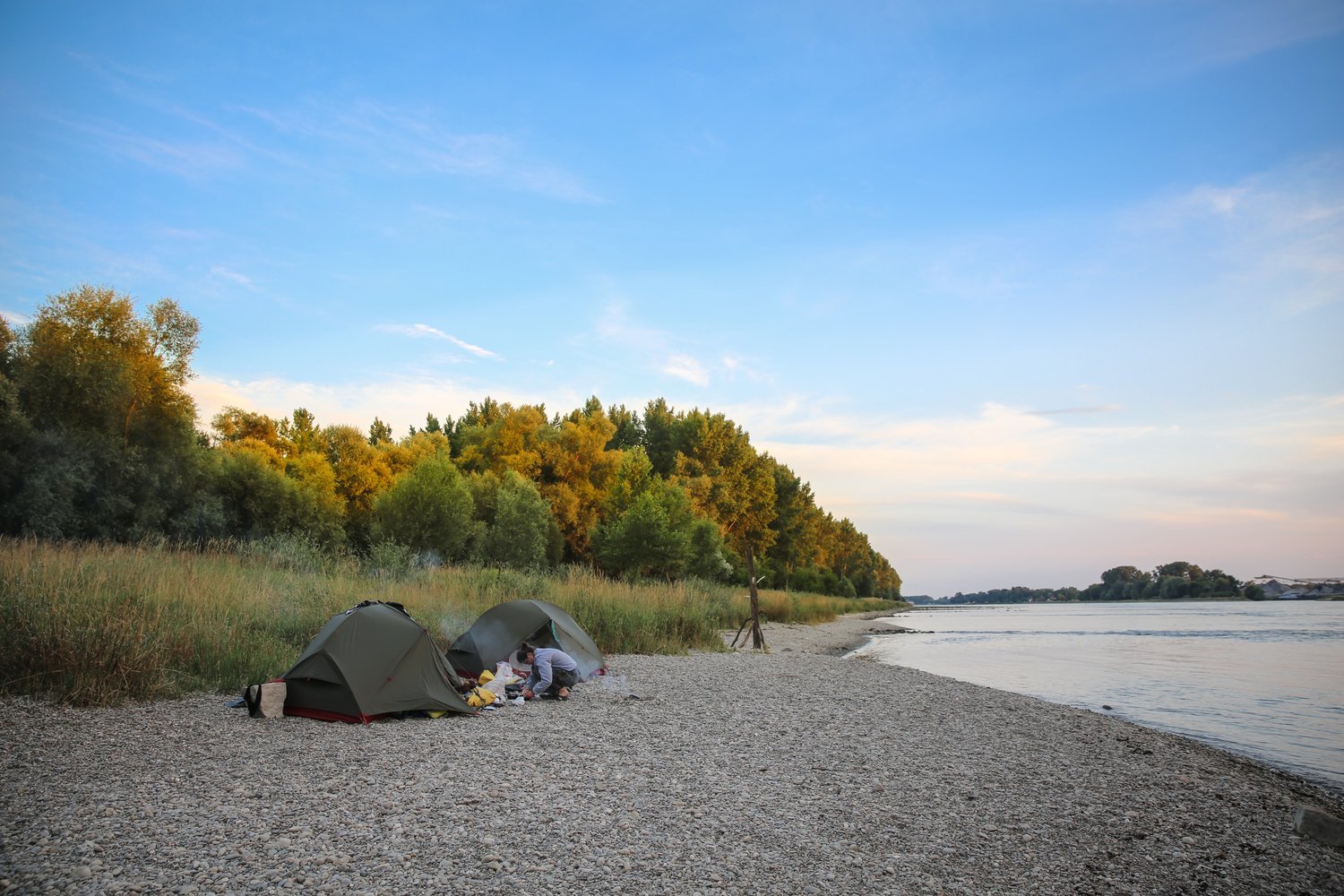
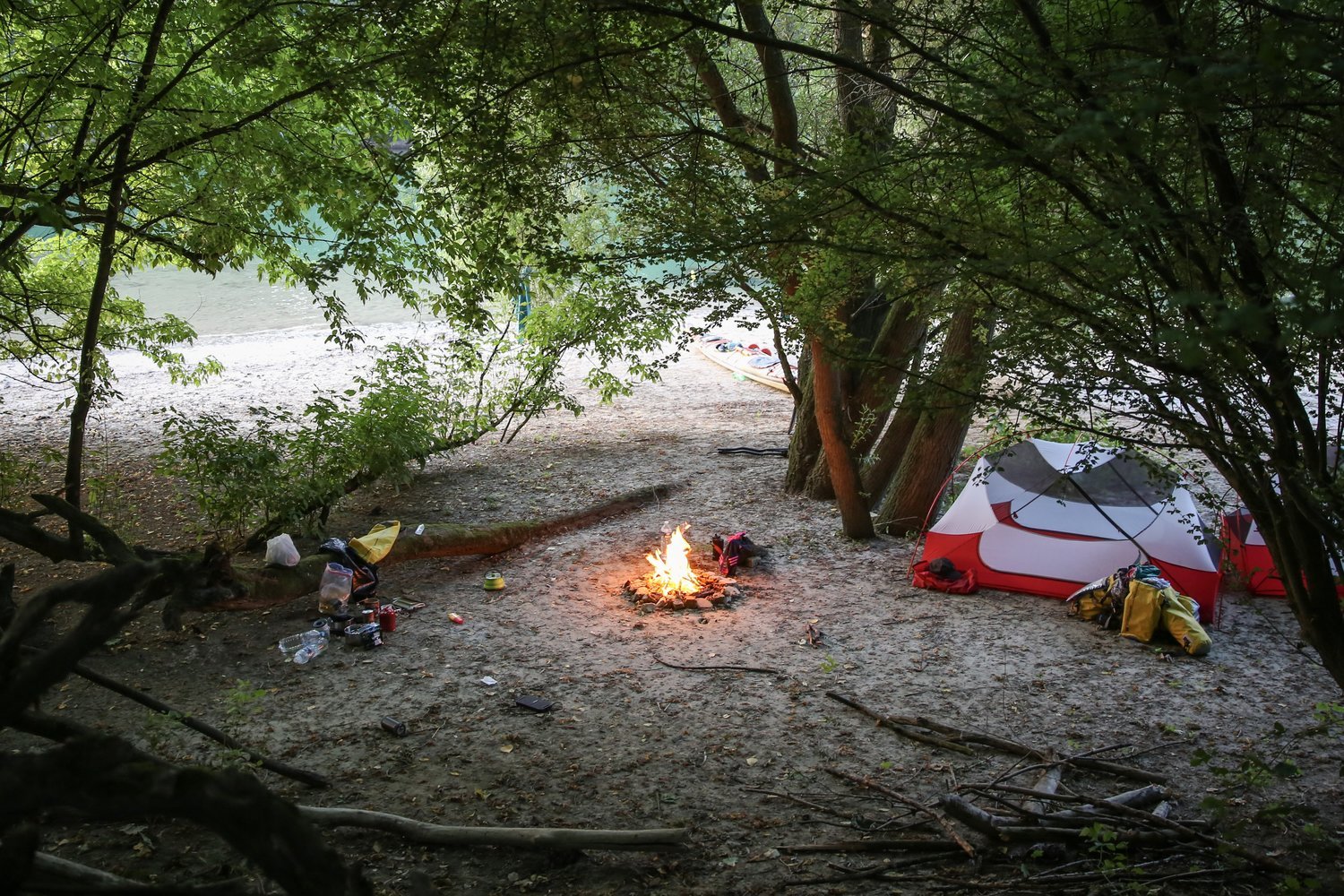
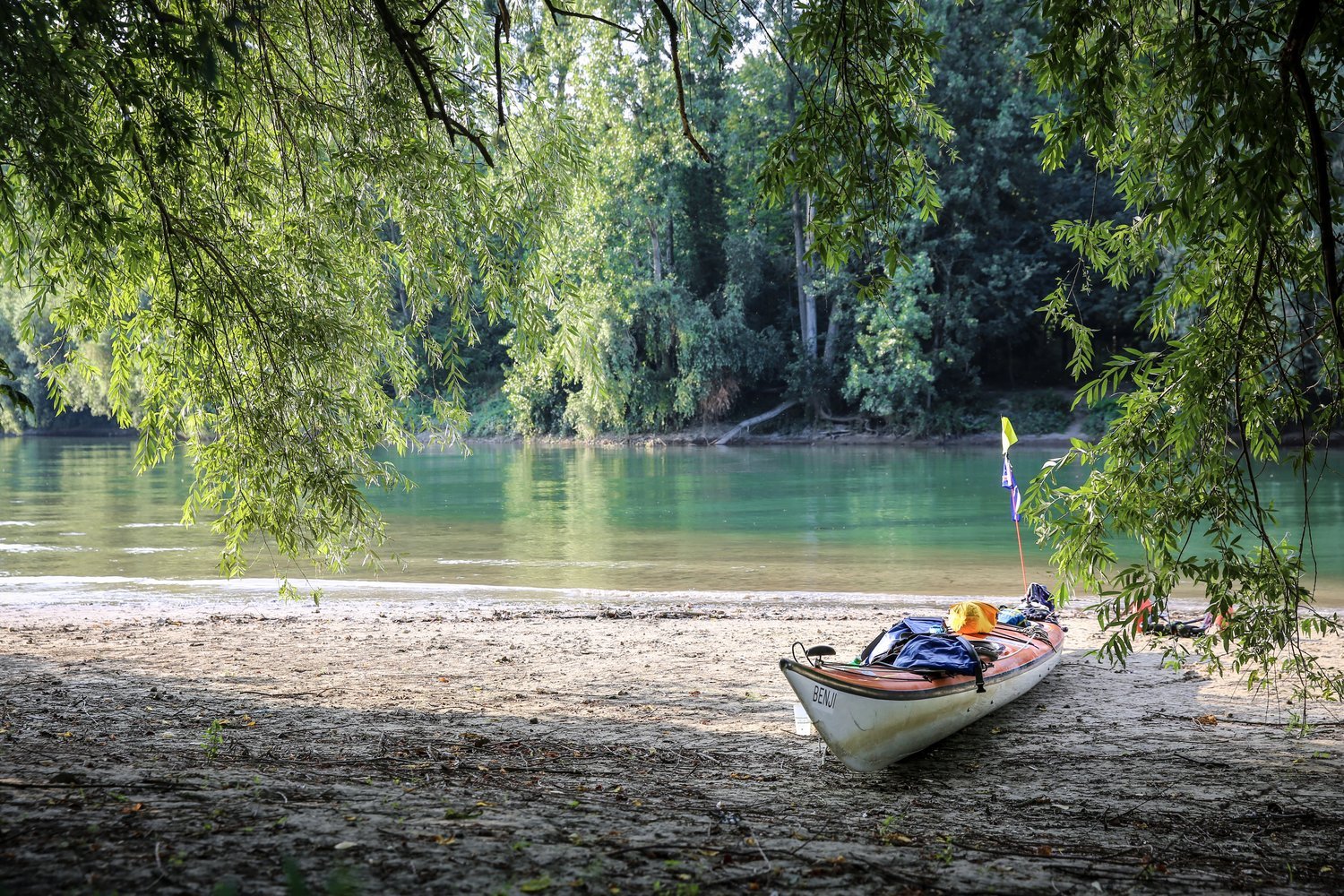
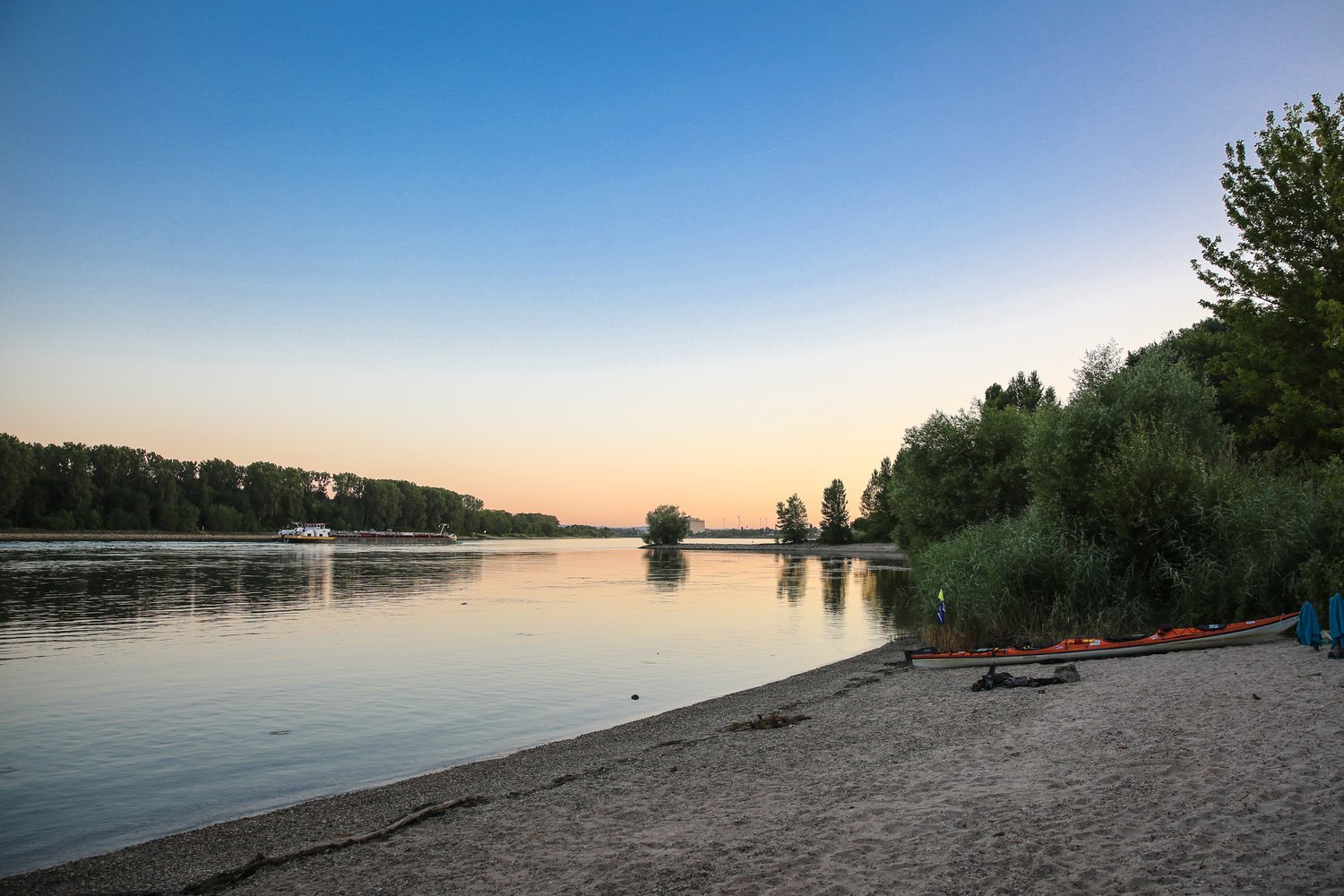
Unfortunately, the next day did not go to plan either, despite steeling ourselves for the ferocious conditions. Dark grey storm clouds loitered overhead threateningly all morning, until we succumbed and stopped at a yacht club. Though the storm had not yet begun, we feared that should we continue, we may not be able to stop due to the flow of the river when the clouds inevitably unleashed their wrath.
It transpired we had chosen the right moment to stop; the president of the yacht club, Wolfi, welcomed us with open arms, allowing us to sleep on the clubhouse terrace for a night, and on his own private yacht the following night while we waited out the bad weather and prepared ourselves to return to the Rhine.
Taking a day away from the frenetic water paid off, as the following day Kate and I managed to pull off our longest day of paddling yet, covering 52km. Not only that, as we adjusted to the new conditions, we even found ourselves enjoying the rapidity with which we moved (though we draw the line at the unpredictable currents, we will never be fond of those). The subsequent days saw us paddling distances of over 40km during the day. The evenings were spent on remote-feeling sandy beaches, a fire blazing and wild swimming a must after long, sweaty days in Benji the kayak.
Our final days on the Rhine were accompanied by brutal headwinds that threatened to rip our paddles from our hands. The worst of it came as we battled our way past Mannheim: here, the Rhine passes through almost 10km of sprawling industrial sites and chemical plants. The river widens here, and the combination of the wind and wash from barges created open water conditions, reminiscent of our tougher days on the sea.
Reaching Mainz, where we were to leave the Rhine, we secured a home for Benji for the night with a fantastic couple who lived on a houseboat. As we were unpacking Benji, they came over to invite us to join them that evening: they were heading to the neighbouring town on their boat to watch a firework display. We unhesitatingly agreed, and a few hours later found ourselves hurtling down the river at the front of the boat, cold drink in hand and music playing from the boat’s speakers. The fireworks were spectacular and a fantastic way to commemorate reaching the end of our 200km on the Rhine.
We are now making our way up the Main, our progress somewhat slowed by the fact that we are paddling upstream. The first few days have gone smoothly as we find ourselves camping next to yacht and rowing clubs who generously welcome us and allow us to use their showers (bliss as the temperature is currently soaring). We even spent an entertaining evening on a yacht with a wonderful man in his late seventies called Norbert, watching the football and listening with interest to him regaling stories of his life.
We’re hoping that the next 300km on the Main go smoothly. We’ve already had one pleasant surprise as we have managed to convince the relative government waterways authority to let us paddle through all thirty-four of the locks, making life infinitely easier. Fingers crossed this good fortune continues!
